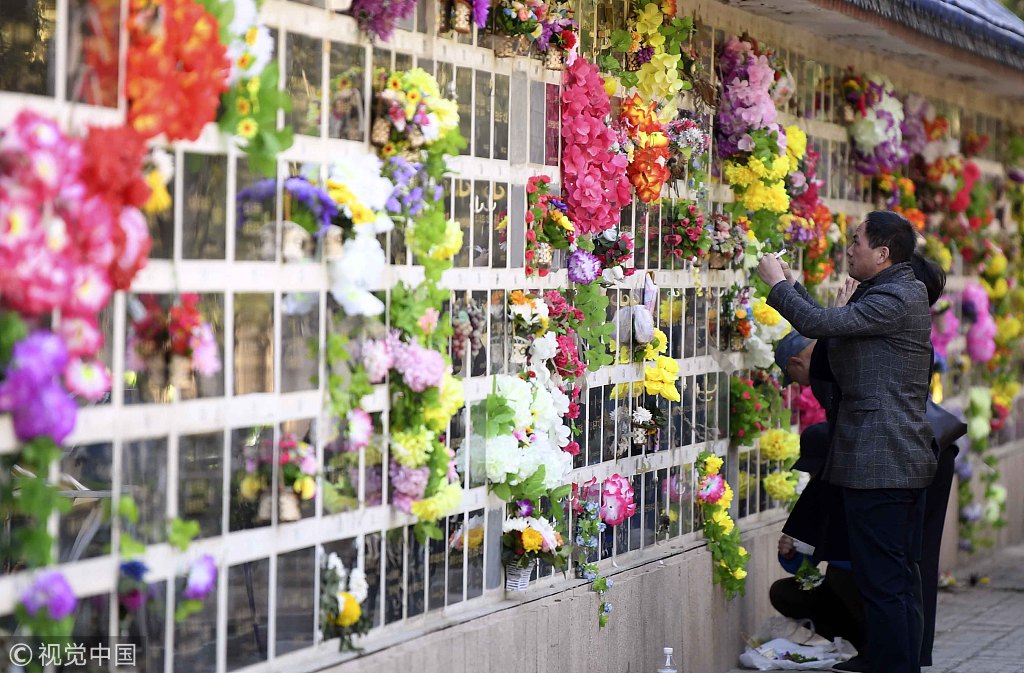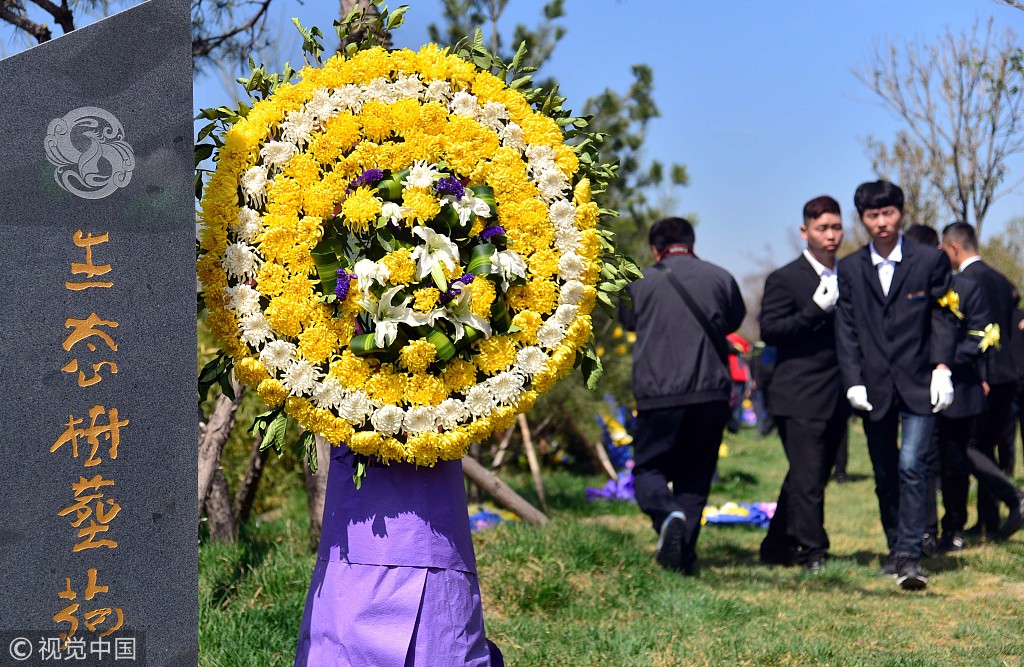Fewer tombs to sweep yet greater space for future generations
- By Li Xiaohua
 0 Comment(s)
0 Comment(s) Print
Print E-mail China.org.cn, April 5, 2019
E-mail China.org.cn, April 5, 2019

China will make a shift to push for eco-friendly burials, according to a recent announcement by the country's Ministry of Civil Affairs, released just ahead of the Qingming (Pure Brightness) Festival, also known as Tomb-Sweeping Day, which falls on April 5 this year.
The holiday, which has been celebrated in China for centuries, is meant to commemorate and pay respect to ancestors. On each Qingming Festival, cemeteries are crowded with people who come to clean up their family tombs and leave offerings.
The recent release urged all local governments to encourage more environmentally friendly funerals by offering subsidies and promoting the use of biodegradable urns, as well as scattering of crematory remains at sea and tree burials.
Longstanding Chinese tradition holds that the dead should be buried in coffins beside their ancestors, but the custom has put a strain on the land resources of the most populous country in the world. Late Chinese leaders such as Zhou Enlai and Deng Xiaoping set examples for modern funerals by having their ashes scattered in the mountains and at sea.
Reports show that although the number of cremation cases rose from about 3.87 million to 4.82 million between 2001 and 2017, the cremation rate remained relatively steady, fluctuating around 50 percent. This is partly due to the deeply rooted custom of traditional burials.
Statistics from the China Funeral Association show that nearly 10 million Chinese people die each year, with a growth rate of 7‰. Given the cremation rate, assuming that each coffin uses 0.5 cubic meters of wood, then about 2.5 million cubic meters of wood are used for coffins each year. Beyond that, if each tomb takes up 10 square meters of land on average, then traditional burials also require 50 million square meters of land each year.
People nowadays often build tombs with cement, which breaks down very little over time. This may be an excellent material for buildings and bridges, but it will make tombs that last forever. If 50 million square meters of land is used for tombs annually over a very long period of time, tombs will be taking over land from forests and plants, leaving no farmland for the living.
A report released in 2015 on China's funeral industry predicted that cemetery plots in most of China's provincial-level regions will be depleted in ten years.
Waning cemetery space is not only squeezing arable land, forests, grassland, and other environmental resources, but also pushing up prices for traditional funerals.
Statistics from China's biggest funeral service company, Fu Shou Yuan International Group, show that the average price for a single cemetery plot rose from 87,400 yuan to 102,400 yuan in 2017, up 17.16 percent, a growth rate higher than that of housing prices in most cities during the same period.

In fact, the Chinese government started promoting eco-friendly burials back in the 1990s. But it is not easy to change people's minds on funeral customs, and many Chinese people see traditional burial as an obligation of filial piety toward their elders.
Against this backdrop, 16 departments, including the Ministry of Civil Affairs, released a guideline in early 2018 aiming to gradually raise the cremation rate year by year in the country and also setting an ambitious target of making eco-friendly burial account for over 50 percent of all burials in China by 2020.
According to the guideline, eco-friendly burial includes storing ashes in cells, tree burial and sea burial. By 2020, there will be funeral parlors with crematoriums in all counties that will meet national environmental protection standards, and public eco-friendly burial facilities will be available in all villages and towns, the guideline specified.
In 2014, only 3.5 percent of burials in 15 of Beijing's government-administered cemeteries were conducted using eco-friendly or land-saving methods, according to a report by Xinhua in 2015. Meanwhile, a report from China News Agency in January 2018 showed that 43.85 percent of all burials in the capital were eco-friendly in 2017, due to consistent promotion efforts including free funeral services and subsidies. This was the highest reported ratio in the country.
If this trend keeps growing, and I am sure it will, we Chinese will definitely have fewer tombs to sweep in the future, but we can scatter petals in the sea, where our loved ones rest in peace.
After all, if you don't change the traditional mindset, you are neglecting the developmental potential of future generations. Needless to say, we don't want our mountains in the future covered with white bones.
If you would like to contribute and have specific expertise, please contact us at opinion@china.org.cn.






Go to Forum >>0 Comment(s)